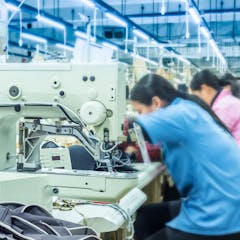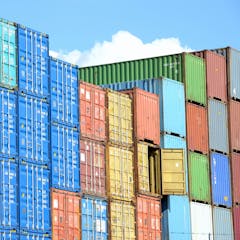
Articles on ethical supply chain
Displaying all articles

Canada is an outlier in its failure to hold buyers and retailers accountable for labour abuse in seafood supply chains.

Supply chains can contain thousands of suppliers spanning continents. DNA testing, drones, satellite imaging and other technologies can help identify forced and child labour.

If we have learned anything from the fight against modern slavery, it is that addressing the issue takes extensive time, resources and long-term commitments.

Just one brand of tinned tuna in Australian supermarkets is able to confidently claim slavery was not involved in its supply.

Adding 20 cents to the price of a T-shirt in Australia would be enough to lift all Indian workers in the garment supply chain out of poverty.
